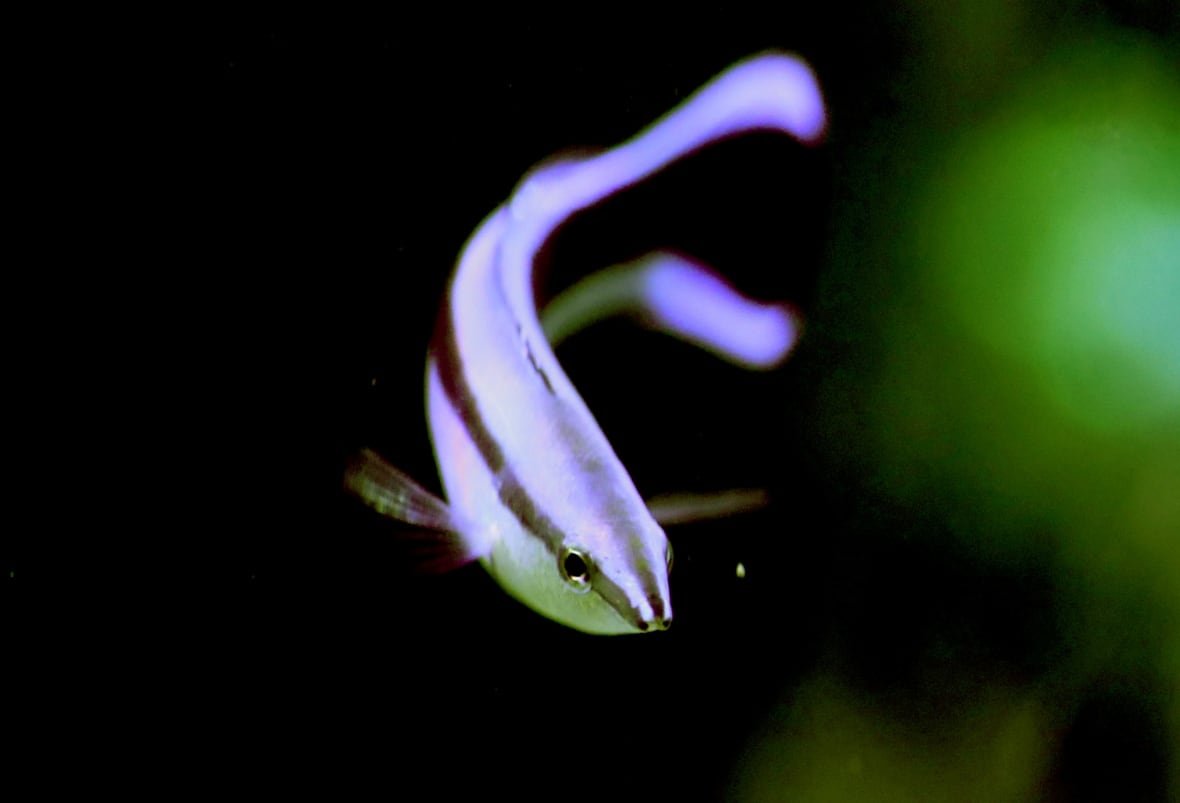
When thinking of animals enjoying themselves, fish may not be the immediate image that springs to mind. However, recent research challenges this perception, indicating that certain fish actively seek pleasurable experiences and may even have a capacity to remember and desire them.
“Most individuals typically view fish as a lower form of vertebrate,” noted Marta Soares, a behavioral physiologist at the University of Porto in Portugal, in a conversation with Nil Köksal from As It Happens.
Historically, research concerning fish has predominantly focused on their stress levels and responses.
In a study recently published in Proceedings of the Royal Society B, Soares and her research team delved into a less explored aspect related to aquatic animals.
They aimed to investigate whether fish could experience positive emotions and sensations akin to pleasure.
The outcomes, according to Soares, mark a progression towards considering fish as more similar to other conventional vertebrates like cats and dogs.
Research Findings
Soares specializes in studying mutualisms, which are interactions between species that mutually benefit each other.
One fascinating example she highlights is the relationship between the bluestreak cleaner wrasse, a silver fish with a black stripe, and the threadfin butterflyfish, a yellow-and-white species with distinctive black markings, within coral reefs.
The cleaner wrasse removes parasites from the butterflyfish’s skin while the latter receives a complimentary grooming session. These interactions occur at designated “cleaning stations” where fish assemble for a quick maintenance session.
However, Soares and her team suspected that there might be more to these interactions beyond mere hygiene.
Based on previous findings showing reduced cortisol levels, a primary stress hormone, in reef fish during cleanings, a new question emerged: could these interactions induce positive feelings?
In a series of laboratory experiments using parasite-free butterflyfish, the researchers removed the health incentive element from the equation.
They observed that the butterflyfish exhibited a preference for the area in the tank where they had previously interacted with a cleaner wrasse.
Soares likened this behavior to a positive memory formation in the fish.
Similar to humans, fish possess an opioid system in their brains that regulates pleasure and pain. The researchers sought to determine if this system influenced the fish’s inclination towards cleaning.
By administering a low dose of an opioid mimic, a morphine-like substance that activates pleasure receptors, the researchers noted an increased attraction of butterflyfish to the cleaning area.
Conversely, when naloxone, a drug that blocks opioid receptors, was administered, the butterflyfish lost interest in the cleaning zone.

Furthermore, the researchers aimed to explore a subtle yet significant distinction: the differentiation between liking the cleaning process and desiring it.
To investigate this, they introduced obstacles in the tank, requiring the butterflyfish to navigate around barriers to reach the cleaners. Interestingly, whether the fish received the opioid mimic or the blocker, they still made efforts to overcome the obstacles to receive grooming.
“They displayed an interest in circumventing these obstacles to access

